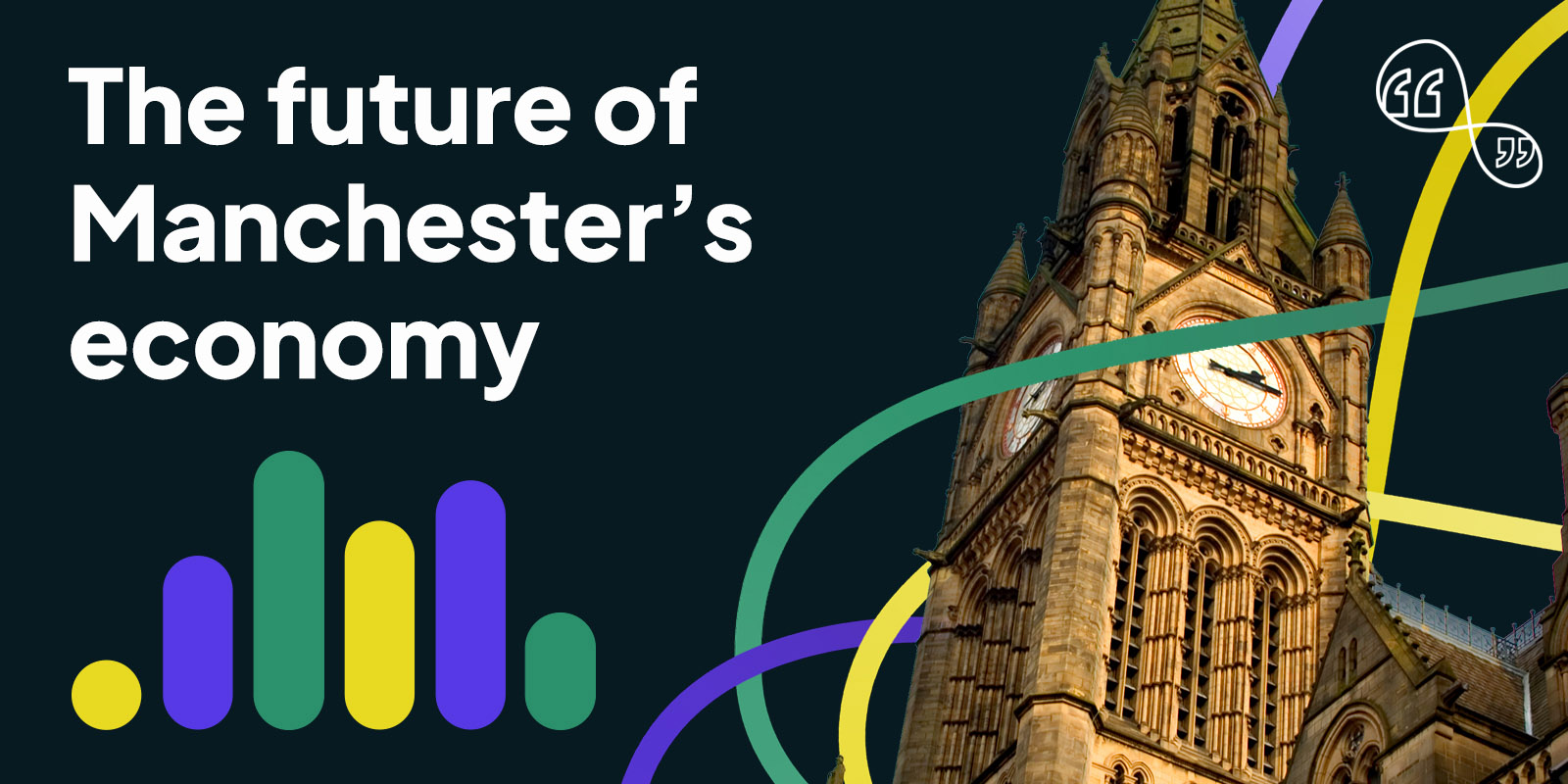With its rich musical heritage, celebrated sporting prowess, and global reputation for being a hub of creativity, it’s no surprise that an increasing number of people and businesses are choosing to lay down roots in Manchester. The city is the spearhead of the Northern Powerhouse – with global brands like the BBC, Google, Amazon, and Microsoft having offices and headquarters here – and is one of the most popular spots outside London for young professionals to begin their careers.
Yet, much like the rest of the UK, the events of recent years have had a huge impact on the economic growth of Manchester, and the ongoing effects are still being felt today.
The lasting impact of the pandemic years
While the COVID-19 pandemic hit every city’s economy hard, Manchester in particular was dealt a heavier blow thanks to the tiered restrictions that were introduced in the latter half of 2020. A report by the Northern Health Science Alliance found that economic outcomes were hardest hit in the Northern Powerhouse – and the average unemployment rate in the North was 6.3% compared to 5.3% in the rest of the country.
The picture was just as bleak for businesses, particularly those in the hospitality sector. According to the Market Recovery Monitor from CGA by NielsenIQ and AlixPartners, Manchester saw a decline of 4.5% in its pub and restaurant numbers since March 2020, with many simply unable to survive the unprecedented closure time across 2020/21.
The increasing pressures of the cost of living crisis
Just as restrictions were eased and Mancunians began to come out in force to support local businesses, a cocktail of problems emerged for the UK economy. Higher inflation rates coupled with increased energy prices has seen many businesses struggle to stay afloat. New research from Vodafone Business found that amongst small business owners, the rising cost of fuel and power (57%), staff wages (34%), broadband and phones (32%), rent/mortgage (32%) and transport/distribution (30%) are their most prominent concerns for 2023 – and a staggering one-in-10 SMEs fear they may lose their business this year.
The Greater Manchester Residents’ Survey conducted in September 2022 highlighted the rising costs and pressures facing both residents and business owners, with 44% reporting high levels of anxiety around the cost of living.
The housing crisis and homelessness
Despite the very real problems being experienced by Manchester’s residents and businesses, the housing market does not paint the same picture of a city in crisis. According to Zoopla, Manchester experienced the second-biggest rise in house prices in the UK last year, and private rents also reached an all-time high. New graduates are being priced out of the city, which could have a knock-on effect on employers’ ability to fill key roles in the future.
Six new tower blocks were agreed in the Castlefield area in 2022, providing nearly 3,000 homes. But none of these homes will be categorised as ‘affordable’ – which will do nothing to help the city’s growing homelessness problem. According to Shelter, there are around 6,780 adults and children who live in households found to be homeless, for whom Manchester City Council has arranged temporary accommodation on a given day.
This is something that Greater Manchester Mayor, Andy Burnham, has publicly condemned, setting up the Greater Manchester Mayor’s Charity to raise funds to support homelessness initiatives across the region. At Delineo, we worked on making as many people aware of this problem through the 1,000 Beds for Christmas campaign in 2021, spreading the message that “There’s no home for homelessness round ‘ere”.
What’s next for Manchester?
Yet, despite the growing worries around the cost of living, housing, and business security, hope can be found for the people of Manchester.
It’s been widely reported that Manchester’s economy is in growth mode, with a new economic report by Irwin Mitchell finding that Greater Manchester’s economy will grow to almost £71bn by the end of 2023. As part of Chancellor Jeremy Hunt’s plans to make Britain the “world’s next Silicon Valley”, Manchester has been identified as an ‘innovation accelerator’, and a key hub for digital and tech, life sciences and advanced manufacturing. This will no doubt attract a wealth of new projects to the city, bringing with it new opportunities, investment, and talent.
This fits the pattern of Manchester’s history as a city of innovation, being the world’s first industrial city in the early 19th But it’s also the people of Manchester who have made major strides like these happen over the years, and who have come together to spread positivity even during tough times.
That trademark Manc togetherness has been displayed in all kinds of ways over the last few years, with initiatives and help set up to tackle many of the issues we’ve explored above. The Helping Hand online resource from the GMCA was set up to help residents with food and energy bills, managing finances, transport costs, and mental health and wellbeing. And for businesses, the Business Growth Hub’s ‘Strive and Thrive’ workshops help companies plan and respond to increased costs through events, drop-in clinics, and insightful seminars.
Clearly, Manchester is a strong city with a strong history of overcoming adversity. And for Manchester, a successful city means nobody is left behind. So now is the time for people to come together in new ways, to support local businesses and nurture young talent, and to make sure Manchester is a great place to live and work for all.
Delineo has called Manchester home for almost 40 years, and we’re proud to have worked with many growing businesses throughout the region. To find out more about the work we do, get in touch.

